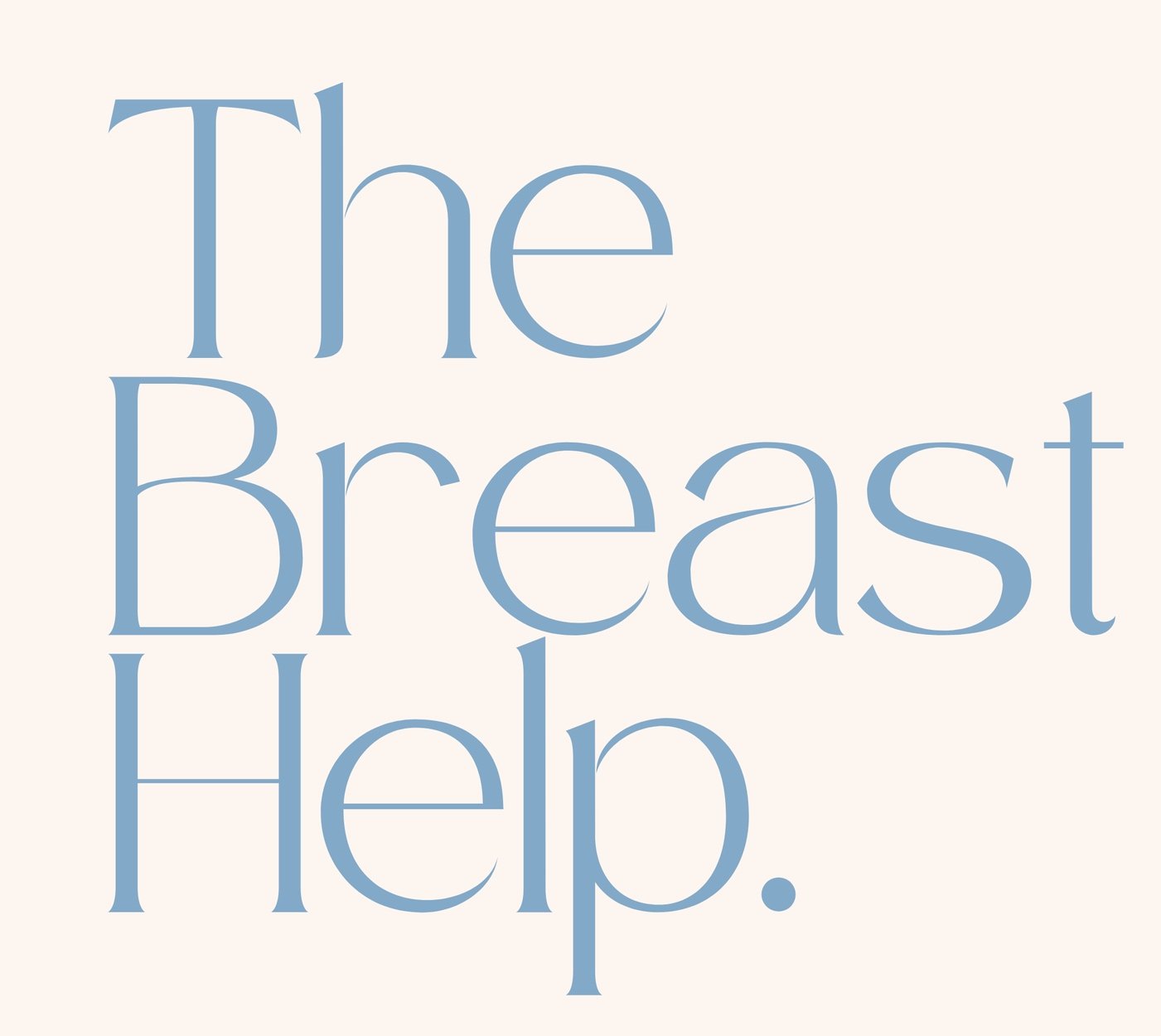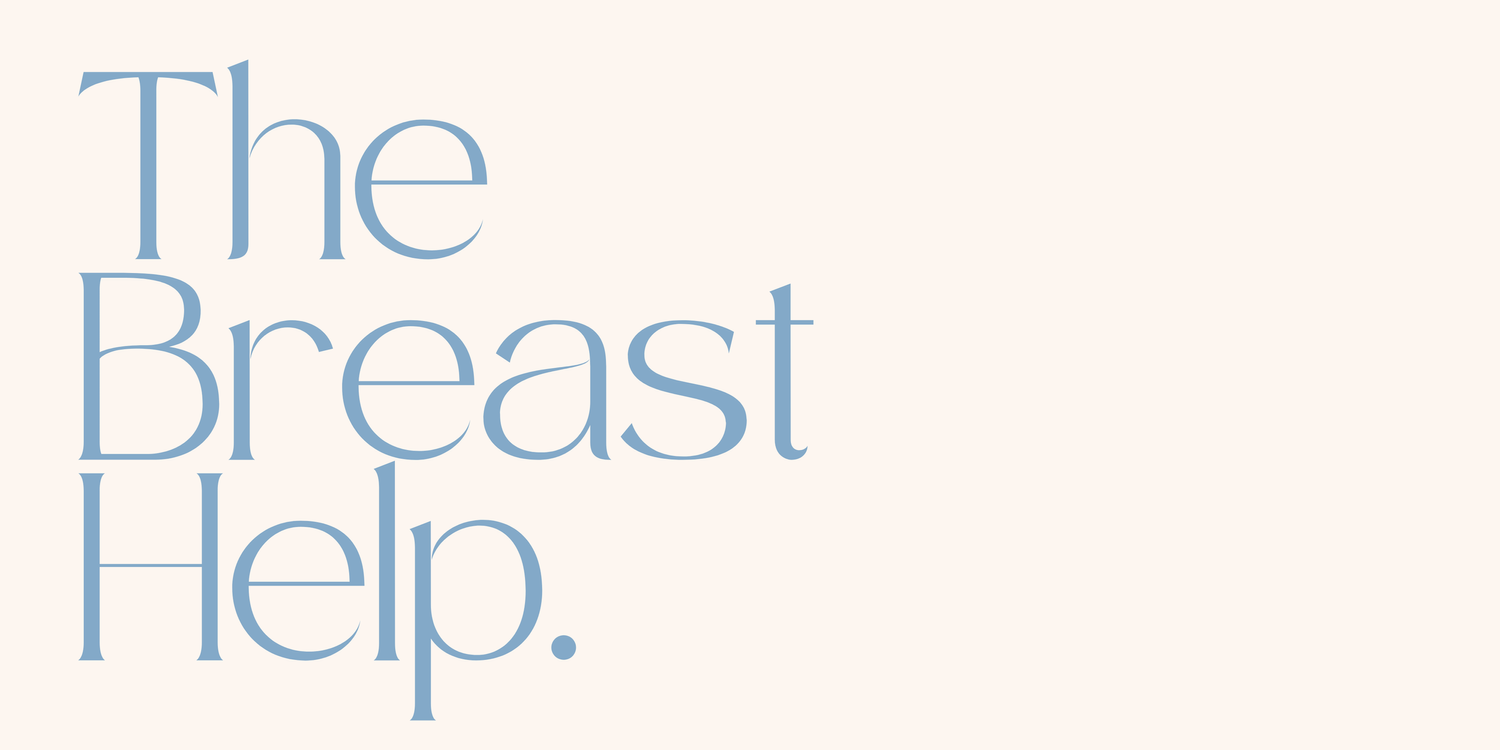Breastfeeding + Biting.
There is no fear quite like the possibility of a bite during a breastfeed!
Sometimes babies bite down during a feed because of a few possible reasons. They could be teething and feel an urge to put pressure on their gums, frustration a slow let down or flow of milk, or it could just come down to your baby’s temperament!
This is where I want to make sure breastfeeding Mother’s understand that it is not normal for a newborn or small baby <3months to bite, and if it happens frequently you should be asking an IBCLC for an oral and suck assessment to see why your baby is having that response during a breastfeed.
Below are some tips for discouraging biting:
Watching when your baby switches from nutritive sucks to a more of a comfort suck - keep feeds efficient + purposeful while there is risk of biting.
Gently feeling with your finger behind the chin, above throat as to when the tongue drops down. This can give you warning prior to a bite because baby won’t want their tongue extended to bite!
Priming the gums prior to a feed. Gum rubs to take the itch from their gums, using @weledaaustralia Teething Powder is excellent for pain relief and I’ve followed instructions but used it to rub on baby’s gums too.
If your baby is teething, offer them a chilled teething toy or a clean cloth to chew on before breastfeeding. This may help soothe their gums and reduce the urge to bite.
Sometimes baby will do a slight quiver of the bottom lip prior to a bite, so if you feel it, move baby off the breast and give them a teething toy. Watch for cues that your baby is about to bite, such as their jaw tensing or their attention shifting. Being attentive can help you anticipate and prevent biting.
Pay attention to your baby's feeding patterns. Some babies may bite when they are done feeding, while others might bite out of curiosity. Anticipating these moments might help you prevent biting.
Keep feeds efficient - adding in breast compressions once the initial let downs have slowed down and unlatching baby once nutritive sucking has finished can minimise chances of a bite during times where it feels like it happens frequently,
Check Latch and Positioning: Ensure that your baby is properly latched onto the breast. If their latch is shallow, or painful it could lead to biting. Adjust your baby's positioning if needed and seek a breastfeeding review by a lactation consultant.
Here are some tips to help you handle the situation:
Stay Calm: Try not to react with a sudden jerk or loud noise, as this might startle your baby and cause more harm (or encourage the behaviour if they have a cheeky temperament!). Stay calm and composed - it’s definitely easier said than done, but try your best!
Gently Remove: Gently unlatch your baby from the breast by inserting your finger between their gums to break the seal. This will help prevent further biting.
Provide Clear Feedback: While unlatching, softly say "no biting" or use a similar phrase to help your baby build the knowledge that biting isn’t okay.
Role model empathy. Inspect your nipple, hold your hand over it and show baby how you would want them to act. Use words like “biting hurt Mummy”.
Sometimes babies bite when the milk flow is too fast. Pay attention to your let-down reflex and consider using a laid back breastfeeding position to minimise the let down’s impact.
Babies often bite when they are distracted. Breastfeed in a quiet, calm environment to minimize distractions and reduce the likelihood of biting.
Positive Reinforcement: Offer positive reinforcement when your baby feeds without biting. Praise them softly or provide gentle affection to encourage good breastfeeding behavior.
Remember that biting is usually a temporary phase.
Consult a Lactation Consultant: If biting becomes a persistent issue, consider seeking guidance from a lactation consultant. They can offer personalised advice and strategies to address the problem.
Be consistent in your response to biting. Maintaining a clear and gentle approach can help them understand that biting is not acceptable.
Handling biting during breastfeeding requires patience, understanding, and proactive strategies. With time and consistent guidance, most babies will eventually stop biting and continue breastfeeding without any issues.
Remember, babies are designed to continue breastfeeding with their first teeth - that's why they're called 'milk teeth' so biting isn’t an indication to wean (unless it’s something you want to do!)


